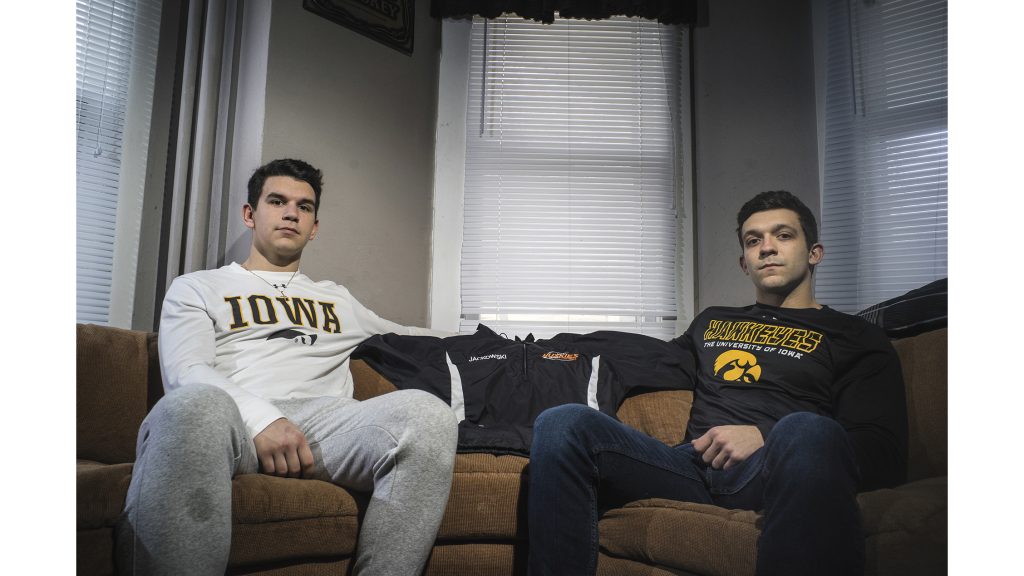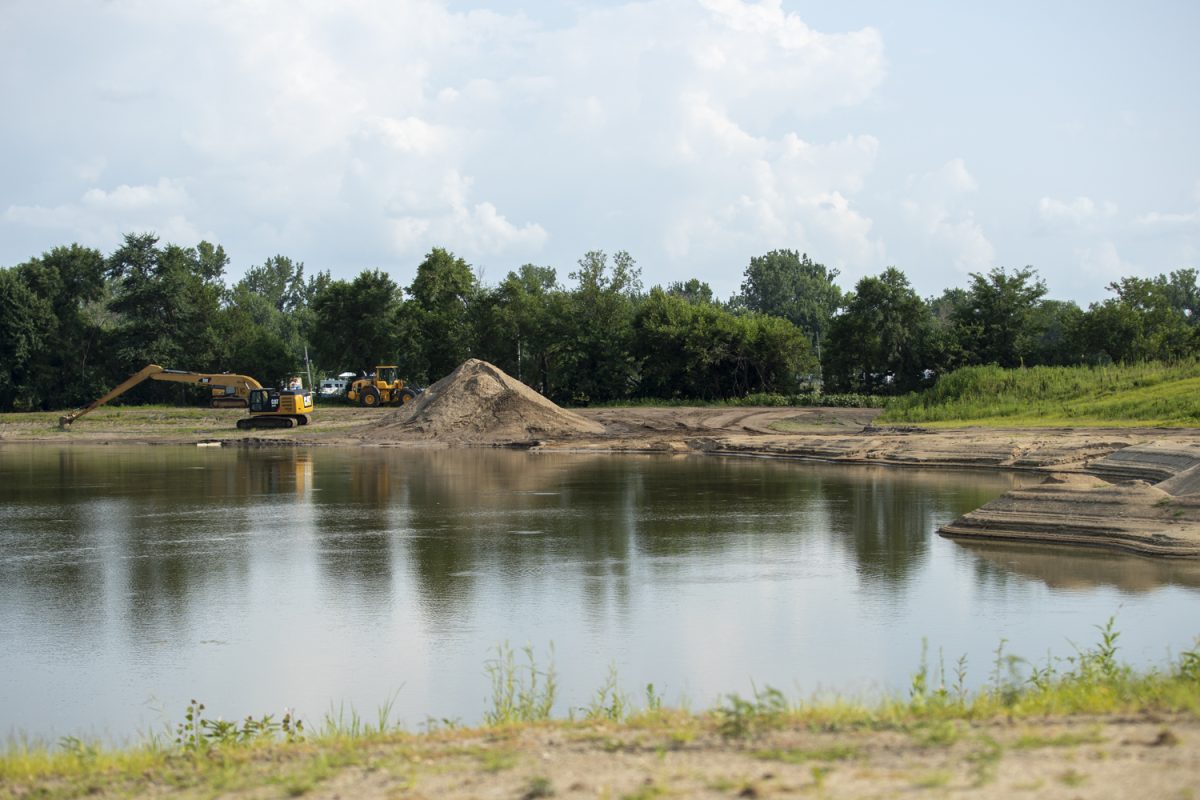People who knew Kamil Jackowski say he was a great friend, selfless, and a natural leader. He was handsome, and his smile could instantly change the mood in a room.
That’s why when the 19-year-old University of Iowa freshman was found dead in a motel room during a fraternity formal in Missouri, the campus reacted by joining together — and greek-life leaders began making prompt changes.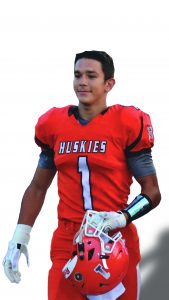
After the incident on April 30, 2017, after which an autopsy found no foul play was involved, the greek leadership immediately reacted by putting a permanent ban on out-of-town formals.
Although Kamil’s death has not been identified as a result of alcohol use, the incident and other mishaps in the community caused leaders to take a deeper look at the party culture in greek life.
Now, UI greek life is under a pilot program that limits its alcohol-related events, and greek-life leaders are working to change the drinking culture on campus.
To remember Kamil, some of his fraternity friends from Sigma Chi created a football tournament to keep his name alive on campus and beyond. The event will also raise money for a scholarship for a football player from Hersey High School in Arlington Heights, Illinois, where Kamil was a team captain.
Kamil’s two brothers, David, 23, and Sebastian, 18, who also attend UI, say it has been a hard year for their family, but they are beginning to celebrate Kamil’s life instead of dwelling on his death.
One year later, as those close to Kamil reflect on his life, and the campus community implements changes to prevent something similar from happening in the future, the tournament and what it stands for is just one step in the healing process.
“I think it speaks to both what kind of kid he was and how amazing and impactful he was on others,” David said. “And also, it speaks on the kids he surrounded himself with.”
Kamil — A goofy, selfless, leader
Kamil and younger brother Sebastian were best friends. They were just one year apart in school and played sports together. Sebastian chose to study at Iowa partly because Kamil would be there to show him around.
Sebastian is a member of the Phi Delta Theta fraternity. Kamil died on Sebastian’s 18th birthday.
When the two played football together at Hersey, they shared a special bond. Quite literally.
One day, while driving home from practice, the two zip-tied their arms together, just for fun. Sebastian leaned over to help Kamil steer the wheel. When they arrived home, they didn’t have anything to cut the tie, so Kamil climbed over the console and the two rolled out of the passenger door together.
“I think, in general, he just loved to joke around with us,” Sebastian remembered. “Especially when our whole family was all together, we’d always be playing jokes on each other. He always had a positive attitude toward you, and he could always make you laugh.
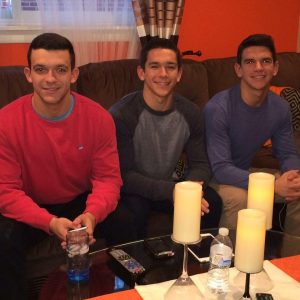
“Me and my brother, we could never stay mad at each other, because it was just the bond that we have.”
Someone sent David, who was already away at school in Iowa, a video of his brothers rolling out of the car, tied together.
“That ability to make you smile with his smile and that lightheartedness,” David said. “That’s what really attracted people to him.”
Kamil’s selflessness is what UI sophomore Blake Wilshire, who came up with the idea for the football tournament and scholarship, remembers most about him.
Wilshire and Kamil were in the same Sigma Chi pledge class, and planned on rooming together in the fraternity house their sophomore year.
The fraternity allows members to choose rooms by their grade-point average. So those with higher GPAs get to pick first.
“[Kamil] had an option when we were picking rooms,” Wilshire said. “He could have a single to himself, but he promised me at the beginning of the year, ‘I’m going to room with you no matter the situation’ … He could have had a single to himself, but he took a double for me. He selflessly chose me rather than a single.”
While in high school, Kamil participated in track and gymnastics, too. He was a member of a student club called Service Over Self, which organizes community-service work through such events as food, toy, and blood drives.

As a UI freshman, Kamil was a dancer in Dance Marathon.
That selflessness extended to other aspects of his life, and older adults who knew him said he was mature beyond his age.
“Kamil, in his own way — I would just say a coach favorite, to be honest,” said Hersey football coach Joe Pardun. “It was only my second year as head coach, so I had him my first and second year, and he was the kid that I would sit down with … I could ask his opinion on things. Everything from culture and team mood to what I was doing and say, ‘Does the team like this?’ He was that leader.”
‘We need to do something different’
Immediately after Kamil’s death, student leaders from UI’s Interfraternity Council and Panhellenic Council issued a permanent ban on all out-of-town formals. There was a temporary ban on all events with alcohol until recently.
Now, the only alcohol-related greek event that is permitted is a pilot program in which chapters must supply wristbands with tabs to limit the number of drinks members consume at an event. Chapters must have been in compliance with the alcohol ban since the fall semester to qualify and participate. Of the 36 chapters on campus, 23 are eligible this semester.
Other chapter events, such as brotherhood and sisterhood nonalcoholic socials, are still allowed.
This moratorium will continue until new expectations become natural for chapters, in which members join for the core values of what it means to “go greek” at Iowa — belonging, serving, leading, thriving, and succeeding — said Sarah Hansen, associate vice president for Student Life.
“We need to provide a holistic experience,” said Erin McHale, assistant director of Fraternity and Sorority Life programs. “We can’t fault the experience of what it used to be, because culture takes time.
“We can’t fault the traditions that were in place that brought students in, but we can be responsible for creating new meaningful traditions that retain students who are looking for that level of experience.”
There have been other life-threatening or reputation-damaging incidents in Iowa’s greek community in recent years — including two women who were seriously injured after falling off a two-story balcony during another formal in Missouri the year prior.
RELATED: 2 UI students injured in Missouri fall
Even more, local venues and hotels have reported damages from greek events, which required some chapters to pay hefty fines.
Some inside and out of the community wonder, why now? After many incidents, it took the leadership of peers to have tough conversations and reflections to change the culture.
Student leader turnover occurs yearly in Iowa’s Interfraternity Council and Panhellenic Council. The leaders during the time of Kamil’s death demanded change.

“It takes strong student leadership to put something into place that is student-led and student-driven,” McHale said. “After a variety of things that have happened over the past couple of years, it caught a lot of attention of university folks … it’s a lot stronger when students are behind the steering wheel.
“And so putting students in a position to be leaders and change agents in the university, I think, unfortunately, it happened after Kamil’s passing, but I have to say, students took ownership.”
A team comprising around half greek-life members and half university administration joined an alcohol-harm-reduction work group to address the issue. The committee started last summer to begin its first phase and met again this past fall for the second phase, Hansen said.
Although the UI has had a reputation for irresponsible drinking, recent statistics suggest the campus, as a whole, has already begun to shift. This, Hansen said, who is overseeing and supporting the efforts of the group, shows that the UI administration knows how to combat these issues.
To address the issue of high-risk drinking for all students on campus, the UI created the Alcohol Harm Reduction Advisory Committee in 2009. Since then, numbers have shown a decrease in alcohol-related risk for UI students.
RELATED: Survey reveals decline in high-risk alcohol use among UI students
Drinking has gone down in many categories on Iowa’s campus, according to the spring 2017 National College Health Assessment survey.
The 2017 survey showed some statistics are the lowest the UI has seen in more than 25 years.
High-risk drinking, defined as more than five drinks on one occasion in the last two weeks, was at 70.3 percent in 2009. In 2017, that mark had dropped to 50.5 percent.
Participants who took the survey (852 in 2009 and 622 in 2017) were asked if they consumed alcohol more than 10 times in the 30 days leading up to the survey.
Responses showed 36.4 percent had done so in 2009, but only 19 percent did in 2017.
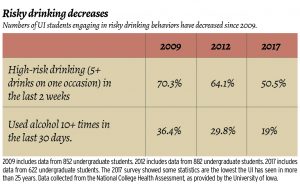
Though the overarching committee compiles data for the campus as a whole, the greek-life focus group is targeted on one area of campus, Hansen said. The group is overseen by the campus-wide committee to help guide the students with initiatives.
“There is overlapping membership across the groups so that we can keep the overarching group apprised of our progress,” she said.
The UI administration has provided tools to the student leaders to execute change.
“I don’t think we can expect our student leaders to be experts on how to do alcohol-harm reduction, because it’s a really complicated thing that takes looking at the individual, the group, the environment, society messages — all of those things,” said Paul Mintner, associate director in the Center for Student Involvement and Leadership and leader of the Fraternity and Sorority Life alcohol-harm-reduction group.
“This isn’t and hasn’t been the university stepping in to tell fraternity and sorority students what to do, but rather fraternity and sorority students saying we need to do something different.”
One result of the greek-life alcohol restriction is individual chapters having more money to spend on nonalcohol-related events.
“They have time to plan some of these events and time to really intentionally think about the direction of their chapter and who’s on board and can identify who those change agents are,” McHale said. “They’ve been able to identify some of those new, cool traditions that they can implement in their chapters.”
The UI administration is stepping up by hiring more full-time staff in Fraternity and Sorority Life to help guide this campus change and, hopefully, set a new precedent for greek-life student leaders — who can become leaders for all students on campus as well, McHale said.
Starting in May, the UI will have the most Fraternity and Sorority Life support staff it has ever had, McHale and Hansen both said.
“There’s been a focus on how the university holds folks accountable, but it’s really important that we get to a place that peers hold people accountable,” Mintner said. “And that takes time and culture change, because people have to see what’s in it for them in the change. Because otherwise, it feels like a loss as opposed to opportunity.”
Keeping Kamil’s name alive
On April 22, Hubbard Park will have two 7-on-7 football tournaments — one for males, one for females — in honor of Kamil. Teams of seven to 10 players can pay $100 to compete, with all proceeds going toward a scholarship to be given to a Hersey football player.
The event is called KJ1 Flag Football after Kamil’s initials and high-school jersey number. As of this week, there has been over $5,000 raised.
“I think the event is really cool because I see it as a way … everyone can be like, ‘This did happen, but hey, we all can use this as a positive thing moving forward,’ ” said Sigma Chi member Gene Reichert. “We can remember what he was, as opposed to try to throw it all away and act like it didn’t happen, because it did.”
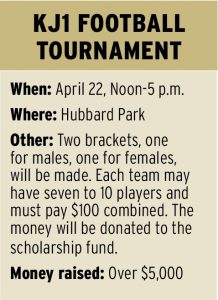 Pardun, the Hersey football coach, will decide the recipient of the scholarship. He said he is looking for someone who displays similar traits as Kamil — someone with great work ethic, dependability, dedication, and modesty.
Pardun, the Hersey football coach, will decide the recipient of the scholarship. He said he is looking for someone who displays similar traits as Kamil — someone with great work ethic, dependability, dedication, and modesty.
Around his teammates, one of Kamil’s best leadership qualities of many, Pardun said, was that he was tough. Not only football tough but mentally tough, he clarified.
At the beginning of Kamil’s senior year, Hersey opened the season with three-consecutive losses. When morale was low and kids were frustrated, Kamil made an announcement at a team dinner.
“He was the one that sat there and said, ‘Listen, I’m just disappointed, I’m embarrassed, we have to do better,’ ” Pardun remembered. “He put it on himself, he did it without blaming other people. He said ‘Look, it’s going to start with me, and we’re going to do better.’
“I’ll never forget that because I just thought, ‘Wow, what an impressive young man.’ When you talk about leadership and work ethic, and responsibility, and dependability, I’ll just be looking for that same kid.”
Not only did Kamil lead the team with positivity but with his athletic skill, too.
During his senior year, Kamil earned a spot on the Daily Herald’s 2015 Northwest All-Area team, chosen for his talent on both sides of the ball. He recorded 407 receiving yards, 219 rushing yards, 7 touchdowns on offense, and 62 tackles on defense.
There have been requests to retire Kamil’s football jersey number officially from the team, which isn’t a common practice in high-school sports.
Instead, Pardun said, he gave the Jackowski family the jersey to keep for themselves, and he doesn’t plan on ordering another one.
‘Everything we do is a first’
The pain of losing a brother and friend was felt in all communities Kamil was part of.
Immediately following his death, friends and family were forced to lean on each other to move forward.
“Going home, we all had to deal with basically an entire summer of people asking us questions that we really didn’t want to answer, just because it gets tedious,” Reichert said. “But having that be a learning point for an entire year has really shaped our physical pledge class itself. No one is perfect, but we’ve made so many changes to the way we look at life and how we do daily things.
“I would say the biggest thing is that you can sense a more togetherness in our fraternity as a whole knowing that you went through such a traumatic event with 43 guys who all knew [Kamil] really well and only have good things to say about him. It just changes the way that I wake up every day.”
Members of Iowa’s greek life outside of Sigma Chi showed support, too. Other houses around campus flew the Sigma Chi flag to honor Kamil, and individuals from other fraternities and sororities came to a memorial service and a vigil on campus.
RELATED: Vigil for 2 students meshes community
As the greek system came together, the Jackowski family grew closer, too.
This past fall, the Jackowski parents, Lidia and Peter, became empty nesters as their kids went off to college. Now, Sebastian said, when he and David go home for breaks or weekends, he can sense how excited his parents are to unite as a family again.
Part of the healing process can be credited to David and Sebastian being minutes away from each other on campus at any given time.
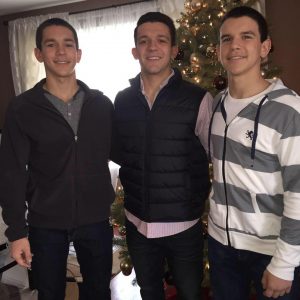
“The fact that we’re together is huge. That’s something our parents have always stressed, is we have to stick close to one another to help each other out,” David said. “It’s nice for me knowing that I can help him out with anything he needs … I can be at his dorm in five minutes, and he can be at my house in five minutes.”
But although this year was an adjustment, things are starting to look up.
“Everything we do is a first. It was the first Christmas; it’s going to be his first birthday … all that stuff,” David said. “There’s a first for everything now, and it’s tough along the way. But it’s definitely gotten easier. I’ve never been this close with [Sebastian] … I’m happy we were able to get closer together.




